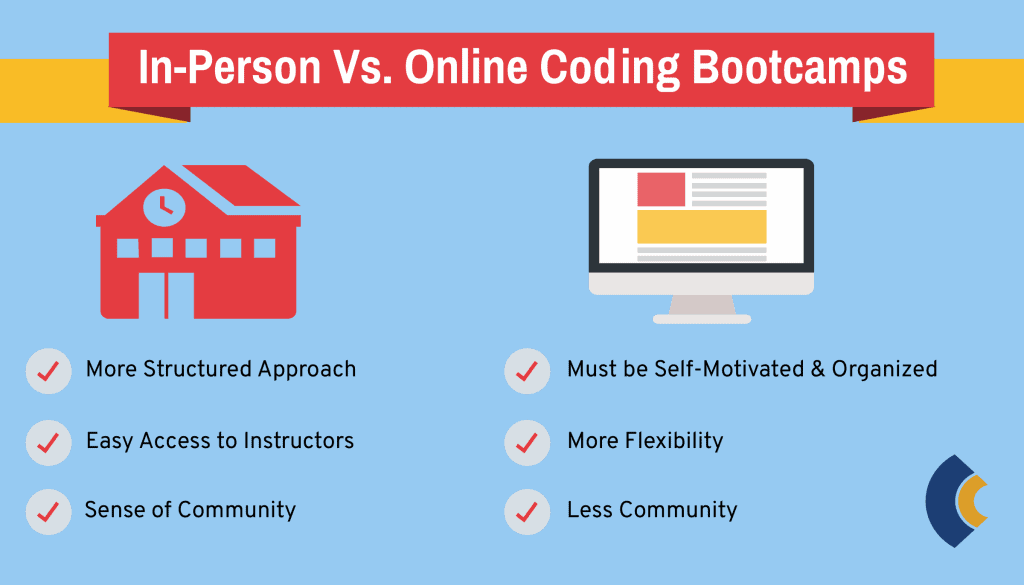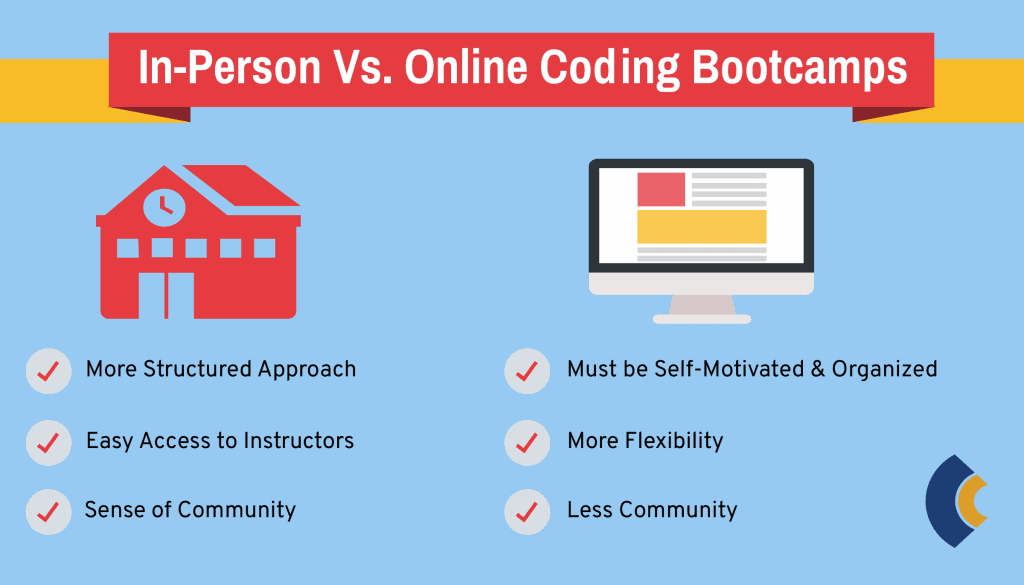What is a Coding Bootcamp?

Coding bootcamps are intensive, short-term training programs designed to equip individuals with the practical skills needed to launch a career in software development or a related tech field. Unlike traditional computer science degrees, which offer a broader, more theoretical education, bootcamps focus on hands-on learning and rapid skill acquisition, prioritizing in-demand technologies and practical application over extensive theoretical foundations.
Coding Bootcamp Curriculum
A typical coding bootcamp curriculum is fast-paced and project-oriented. Students learn through a combination of lectures, hands-on coding exercises, group projects, and individual assignments, culminating in a capstone project that demonstrates their newly acquired skills. The curriculum often emphasizes specific technologies and frameworks relevant to current industry needs.
| Programming Languages | Typical Project Types | Average Bootcamp Duration | Learning Methodology |
|---|---|---|---|
| JavaScript, Python, Java, Ruby, C# | Web applications, mobile apps, data analysis projects, game development | 3-6 months (full-time), 6-12 months (part-time) | Hands-on coding, group projects, individual assignments, lectures |
Types of Coding Bootcamps, What is bootcamp coding
The choice of bootcamp depends largely on individual learning styles, time commitments, and financial considerations. Different formats cater to various needs and preferences.
- Full-time Bootcamps: These intensive programs typically run for 3-6 months, requiring a significant time commitment. They often offer a more immersive learning experience, allowing for faster skill acquisition and quicker job placement.
- Part-time Bootcamps: These programs are designed for individuals who maintain other commitments, such as work or family responsibilities. They generally extend over a longer period (6-12 months) with less intensive daily schedules.
- Online Bootcamps: These programs offer flexibility and accessibility, allowing students to learn remotely from anywhere with an internet connection. However, they may require more self-discipline and initiative.
- In-person Bootcamps: These programs provide a more collaborative learning environment, with direct interaction with instructors and peers. They offer opportunities for networking and immediate feedback.
Bootcamp Learning Methods and Structure: What Is Bootcamp Coding

Coding bootcamps utilize intensive, immersive methods to rapidly equip students with in-demand tech skills. Unlike traditional university programs, they prioritize hands-on experience and rapid skill acquisition over extensive theoretical knowledge. This approach often involves a blend of teaching methodologies designed for fast-paced learning and immediate application.
The curriculum is generally structured around a series of projects, culminating in a capstone project that showcases the student’s comprehensive skills. This project-based approach allows students to immediately apply learned concepts and troubleshoot real-world challenges. The intensity and focus on practical application are key differentiators from traditional academic settings.
Teaching Methodologies
Coding bootcamps employ a variety of teaching methodologies to maximize learning efficiency. These methods are designed to foster collaboration, problem-solving, and rapid skill development within a short timeframe. The most common approaches include project-based learning, pair programming, and instructor-led lectures. These are often supplemented with workshops, individual mentorship, and access to online resources.
Daily and Weekly Schedule
A typical bootcamp day involves several hours of intensive instruction, interspersed with coding exercises and project work. Students can expect a full day of classes, often extending beyond the traditional 9-to-5 workday. A sample schedule might include morning lectures introducing new concepts, followed by afternoon workshops or project work sessions. Evenings are often dedicated to independent study, homework assignments, and collaboration on projects. The weekly schedule usually involves a progression of concepts and projects, building upon previously learned skills. Weekends might offer a brief respite, but often involve catching up on assignments or working on personal projects. The overall intensity necessitates significant time commitment and self-discipline.
Comparison with Traditional University Settings
Bootcamps differ significantly from traditional university settings in several key aspects. The most striking difference is the intensity and pace of learning. Bootcamps are designed for rapid skill acquisition, typically lasting a few months, compared to years in a university program. The learning environment is also more hands-on and project-focused, with less emphasis on theoretical frameworks. Furthermore, the collaborative nature of bootcamps, such as pair programming, is less prevalent in traditional university settings. Finally, the cost and time commitment are generally lower for bootcamps, making them a more accessible and quicker pathway to a career in tech for many individuals. However, universities often offer broader theoretical foundations and a wider range of courses, providing a more comprehensive educational experience.


Tim Redaksi